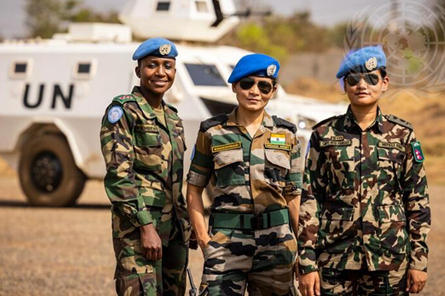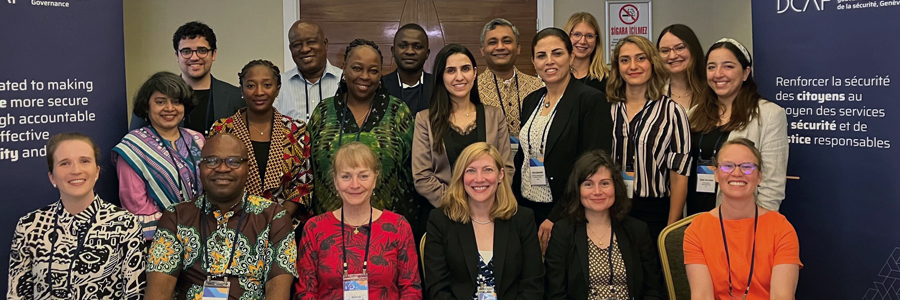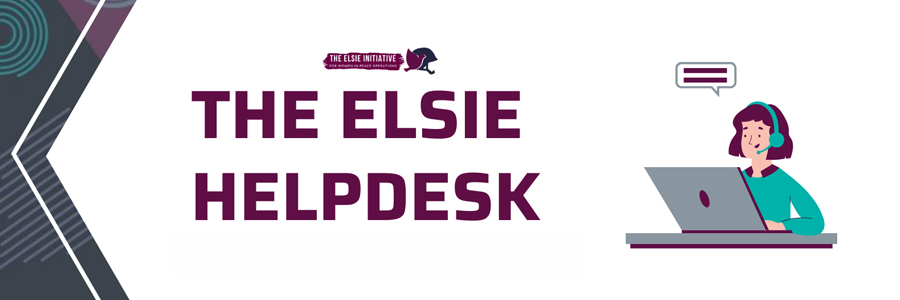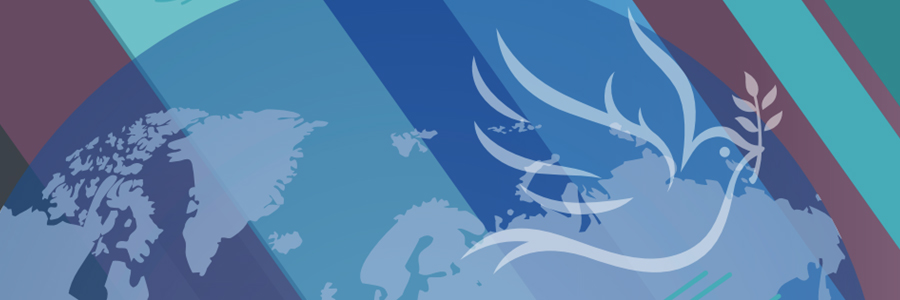Elsie Initiative
Ensuring that women have the right to participate meaningfully in UN Peace Operations is essential for justice and effectiveness. Evidence shows that women's meaningful participation and gender equality enhances mission success.
Women have an equal right to participate in peacebuilding efforts, yet only 7.3% of uniformed peacekeepers are women.
The Elsie Initiative for Women in Peace Operations, a multi-stakeholder initiative, led by Global Affairs Canada, aims to increase women´s meaningful participation. Going beyond numerical targets means ensuring inclusive environments, and women represented across all ranks.

Workstreams/Projects
DCAF's Elsie Programme aims to enhance women's meaningful participation within national security institutions and in UN Peace Operations.
Through the development of the Measuring Opportunities for Women in Peace Operations (MOWIP) methodology, in collaboration with Cornell University, DCAF has created a robust framework for assessing and promoting meaningful participation of women.
Piloting the MOWIP methodology in multiple troop- and police-contributing countries (TPCCs) has led to a comprehensive dataset that highlights the importance of gender equality in achieving sustainable peace.
DCAF's MOWIP Helpdesk offers support to security institutions aiming to implement a MOWIP assessment. Contact us at elsie@dcaf.ch to find out more.
DCAF also engages in policy advocacy, exemplified by the Global MOWIP and the Opportunities for Women in Peacekeeping: Policy Series, which aims to inform and drive data-driven systemic change towards gender-inclusive peace operations.
Currently, we are supporting focus countries in turning their MOWIP recommendations into reality with new policies and practices that will increase women’s meaningful participation in national security institutions and as peacekeepers.
Relevant resources:
 The Measuring Opportunities for Women in Peace Operations (MOWIP) Methodology is a rigorous and innovative tool to measure the degree to which women can meaningfully participate in peace operations from the perspectives of the troop- and police-contributing countries (TPCCs).
The Measuring Opportunities for Women in Peace Operations (MOWIP) Methodology is a rigorous and innovative tool to measure the degree to which women can meaningfully participate in peace operations from the perspectives of the troop- and police-contributing countries (TPCCs).
It develops ten issue areas and measures the degree to which the issue areas constitute a barrier or create opportunities for women’s meaningful participation.
The MOWIP methodology not only assesses barriers but identifies good practices that could be used by the institution or shared with other TPCCs.
Conducting a MOWIP assessment within an institution is transformative in itself. The assessment engages staff across the security institution, including senior leadership, and lays a solid foundation for sustainable change in awareness, attitudes and behaviors related to gender equality.
In addition, the findings contribute to an evidence base that enables the design of transformative interventions to improve women’s meaningful participation.
The MOWIP Methodology was developed in partnership with Cornell University and visionary practitioners from eight partner countries (Bangladesh, Ghana, Jordan, Mongolia, Norway, Senegal, Uruguay and Zambia).
Relevant resources:
 The Measuring Opportunities for Women in Peace Operations (MOWIP) Toolbox provides all data collection tools, templates, and explainers necessary for conducting a MOWIP assessment. You can download all the necessary tools on the Toolbox webpage.
The Measuring Opportunities for Women in Peace Operations (MOWIP) Toolbox provides all data collection tools, templates, and explainers necessary for conducting a MOWIP assessment. You can download all the necessary tools on the Toolbox webpage.
Implementing a MOWIP assessment involves navigating various challenges and leveraging on best practices. It requires a dedicated team with a variety of skills and commitment.
The DCAF MOWIP Helpdesk provides essential support to security institutions undertaking a MOWIP assessment, including support in applying for funding from the Elsie Initiative Fund.
For any question, please contact the DCAF MOWIP Helpdesk at elsie@dcaf.ch
The updated version of the toolbox is currently available in three languages.
Relevant Resources:
 The Elsie Programme has three vital resources which illuminate key lessons learned for advancing women's meaningful participation in peace operations.
The Elsie Programme has three vital resources which illuminate key lessons learned for advancing women's meaningful participation in peace operations.
The Global MOWIP, drawing on data from several MOWIPs, provides actionable insights for international peacekeeping policy and practice. It emphasizes the centrality of women's meaningful participation and gender equality in shaping future-fit Peace Operations, transcending institutional boundaries to address broader societal issues.
Complementing the Global MOWIP, DCAF´s Elsie Policy Brief series dismantles persistent myths hindering progress in peacekeeping. It advocates for meaningful participation, shifting focus from numerical metrics to transformative actions, as evidenced by MOWIP data.
Furthermore, the Practitioners’ Insights Brief provides advice to practitioners about how to conduct a MOWIP by describing key moments in the process and presenting insider advice for successful implementation.
Relevant Resources:
- Implementing a MOWIP assessment: Practitioners' insights
- Global MOWIP Report
- Opportunities for Women in Peacekeeping: Policy Series
- Harvesting the fruits of gender work
DCAF provides technical advice to Troop and Police Contributing Countries (TPCCs) to help them implement the recommendations from their MOWIP reports, including in:
- Bangladesh, where DCAF partners with the Bangladesh Armed Forces and the BIPSOT to implement the key recommendations of the MOWIP report.
- Jordan, where DCAF partners with the Jordanian National Commission for Women to support the Public Security Directorate’s efforts to implement and report on their commitments connected to the Jordanian National Action Plan on Women, Peace and Security (JONAP II).
- Uruguay, where DCAF partners with RESDAL to support the Ministry of Interior in conducting a Gender Self-Assessment, based on DCAF’s methodology, and by providing capacity building for the National Police.
- Senegal, where DCAF partners with the REPSFECO and DIRCEL to implement the Sectoral Gender Strategy of the Senegalese Ministry of the Armed Forces.
- South Africa, where DCAF partners with the Institute for Security Studies, Department of International Relations and Cooperation within the Ministry of Foreign Affairs, National Defence Force and Police Service to champion and influence efforts to enhance women´s meaningful participation.
To learn more about how DCAF can support your institution in conducting or implementing a MOWIP and its recommendations, contact us at elsie@dcaf.ch
More National Reports:
Key Resources
Contacts
Inka Lilja, Principal Programme Manager / The Elsie Initiative ( i.lilja@dcaf.ch)





